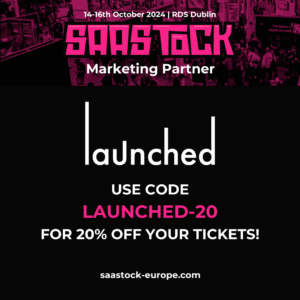London Blockchain Firms Raise over $500 Million in Equity Funding since 2013

Analysis of global startup hubs by Outlier Ventures, as part of London Blockchain Week has revealed that London may be one of the most preferred hubs for blockchain start-ups to headquarter themselves.
A remarkable 450 blockchain companies call London home. Inflow of talent from the EU (prior to Brexit), low barriers to company incorporation and active involvement of the FCA combined with the broader fintech ecosystem around London is considered to be the key reasons behind this.
Since 2013, blockchain startups in the United Kingdom have raised a collective $503 million between themselves in equity raises. 1 in 3 blockchain companies in the region manage to raise funding. Of the total capital allocation, $95 million has been invested in seed stages alone. London also dominates as a preferred hub for startups to set themselves up in comparison to other regions in the EU like Berlin and Zug in spite of their thriving ecosystem.
Potential access to capital does not necessarily mean rampant scaling or growth. The power laws for blockchain firms in the UK are similar to those found elsewhere. Only 13 percent of all firms that raise funding go on to raise a Series A and a mere 3% witness a Series B. Challenges around regulations, attracting the right talent post-Brexit, targeting ideal markets and improving user experiences plague startups in the UK too. One of the challenges faced by startups is that while blockchain technology could see substantial adoption in another part of the world, regional regulations being laggard and strictly enforced could restrict how fast firms can react to changes.


From the research it is evident blockchain as an ecosystem continues to be unwelcoming to women. According to the limited data available on Crunchbase, a mere 13% of employees in blockchain startups are women and only 10.4% of founders with investments are women.
“We need to do more to facilitate the involvement of women in the blockchain ecosystem, and improve their access to capital. These statistics are appalling.”
Dr Jane Thomason, CEO Fintech Worldwide
The United Kingdom beats its peers by far but if the ecosystem needs to grow, more needs to be done in terms of diversity. The United States had slightly more female employees (at 14.2%) but considerably lower number of female founders with backing.
With startups like Blockchain.info and Revolut in the region, London is home to some of the biggest names in both fintech and the digital asset ecosystem. With regulators like the Bank of England being active proponents of Central Bank Digital Currencies and regional investment funds scaling up their activity, London appears to be in good shape to continue being a dominant hub for blockchain startups to set themselves up in.
“London remains impressive for its ability to enable startups to incorporate and raise within short periods of time. A major contributor towards this is the well established financial ecosystem in the region. London absorbing blockchain projects is an indication of the region’s evolution.”
Joel John, Outlier Ventures Analyst:
Outlier Ventures are looking to continue to grow, develop and support London startups working in the open data economy. Outlier run a 3 month accelerator program called Base Camp with £35k immediate funding, office space, legal and back-office support for early stage projects.
If you are an early stage startup in London building emerging technology or want to learn more about how you or your company could be involved, drop in an email to Scott Collen who runs the program: scott@outlierventures.io
Read the full report: https://outlierventures.io/research/london-blockchain-firms-raise-over-500-million-in-equity-funding-since-2013/
